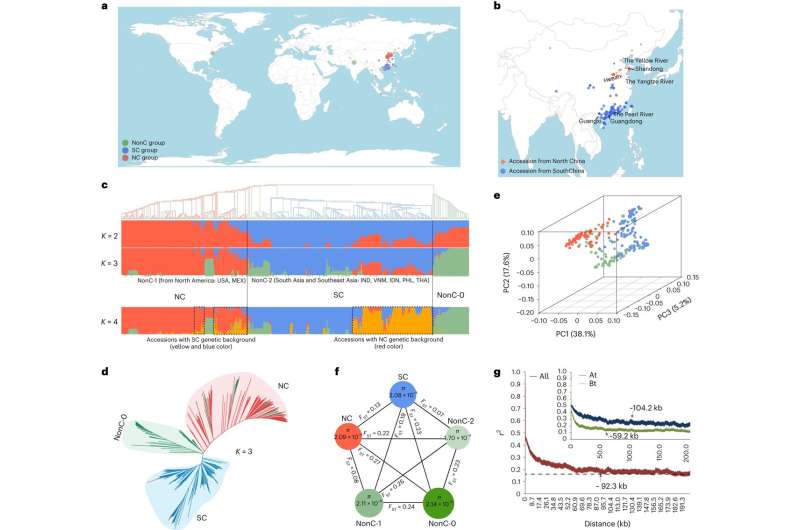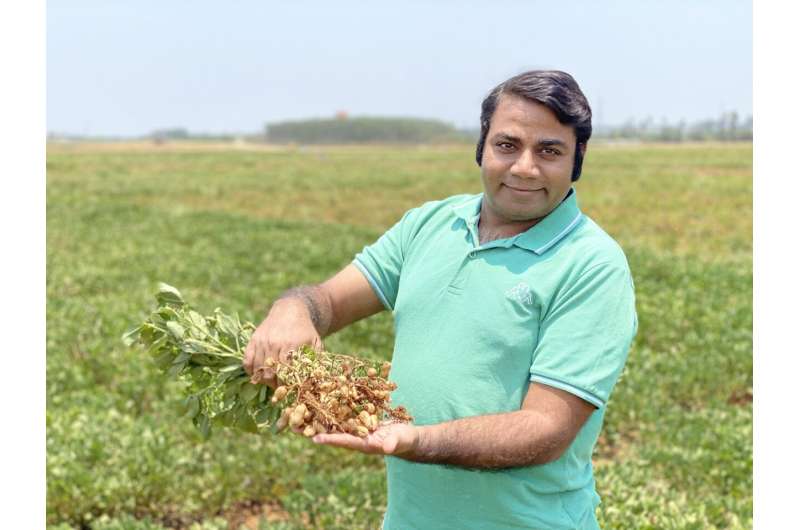This article has been reviewed according to Science X's editorial process and policies. Editors have highlighted the following attributes while ensuring the content's credibility:
fact-checked
trusted source
proofread
A better peanut on your plate? New findings reveal potential for peanut crop improvement

Global population growth has led to rapidly increasing food demand. A new international study, published in Nature Genetics, has found a way to accelerate crop improvements, specifically in peanuts.
Murdoch University Food Futures Institute's Center for Crop & Food Innovation Director Professor Rajeev Varshney FRS said the significant findings of the collaborative research pave the way to improving global food security.
"The peanut is an important crop in developing countries like Asia and Africa and holds great potential in combating malnutrition due to its rich content of OA-rich oil, protein, dietary fiber, and various vitamins," Professor Varshney said.
"Our study, undertaken collaboratively with researchers across the world, aims to enhance crop improvement efforts.
"China is one of the world's largest peanut producers and consumers. We performed Genome-Wide Association Studies for 20 component traits and created a genome-wide variation map, suggesting that peanuts might have been introduced into southern and northern China separately, forming two cultivation centers.
"We found groundbreaking genomic variations in a collection of 390 peanut germplasm—the seeds, plants, or plant parts useful in crop breeding.
"The results also unveiled multiple selective signals relevant to crop improvement and several candidate genes related to key desirable agronomic traits such as high yields, disease resistance and quality of the end product."

One of the significant findings of the study was the identification of the AhANT gene, associated with seed and pod weight, on chromosome B06.
The AhANT gene, belonging to the ANT-like gene family, plays a crucial role in controlling organ cell number and size throughout shoot development.
Another important candidate gene, AhBSK1, encoding a serine/threonine-protein kinase, was found to be associated with peanut-branching habits. The study also identified the AhWRI1 gene, encoding an ethylene-responsive transcription factor, as being involved in oil biosynthesis, not only in peanuts, but also in other crops.
"While these candidate genes hold great potential for peanut molecular breeding and crop improvement, future studies, including functional genomics methods such as transformation and gene editing, will be necessary to verify the biological effects of these genes in peanuts," Professor Varshney said.
More information: Qing Lu et al, A genomic variation map provides insights into peanut diversity in China and associations with 28 agronomic traits, Nature Genetics (2024). DOI: 10.1038/s41588-024-01660-7
Provided by Murdoch University




















